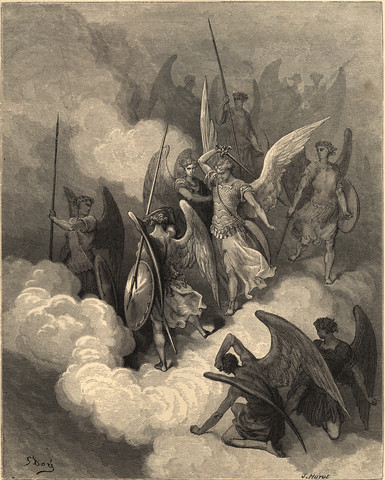But far be it from me to boast except in the cross of our Lord Jesus Christ, by which the world has been crucified to me, and I to the world” (Galatians 6:14).
Spent the week in Chicago at The Gospel Coalition conference which focused on preaching Christ in the Old Testament. Tim Keller gave a wonderful message on Exodus fourteen, Israel’s passing through the Red Sea. I commend it very highly to you. Not only did the sermon reveal the exodus as a prefigurement to Christ’s work on the Cross, but it also displayed properly how to “connect the dots” to the great redemptive themes of the Bible. “When you go to Luke 9, the transfiguration, Jesus is talking to Moses and Elijah about His departure, about His death in Jerusalem, but the Greek word there is “Exodus,â€â€”Jesus’ death on the cross is the greater exodus” (Tim Keller).
For the Jews, the Exodus was their defining moment. The crossing of the Red Sea displayed to the Hebrews God’s covenant faithfulness. God loved Israel, he would protect them, he would supernaturally intervene and provide for them.
For the Christian, the Cross is our defining moment. Christ’s death, burial, and resurrection displays to the world God’s love and grace. God loves the world, he died that they might have life, he supernaturally intervened, and provided salvation for us all.
For the Christian, the Cross is our exodus. We have crossed from the darkness of Egypt through the dangers of the Red Sea into the promise land of the kingdom. The enemies of our soul are defeated: the world, the flesh, sin, death, and the devil. The cross is between us and our sinful failures. The cross is between us and our guilt and shame. The cross is between our embarrassing past and our hope-filled future. For us, the cross lies between death and life.
This wonderful epistle [Galatians] speaks of the cross as between me and Egypt, between me and the wilderness, between me and my past, my wanderings; and now the cross is my Jordan by which I pass through death into the land where Joshua leads, the land that flows with milk and honey . . . .
You have not therefore got to worry about the death side; think about the life side. Do not live looking at the corpse, but looking to the Holy Ghost; as you breath in the Holy Ghost moment by moment as you breathe in air, in the depth of your heart He will draw you away from the flesh, the self, the world, the devil; and insensibly, unconsciously, exquisitely, He will bring you into life. And the more you live on the life side, the more, without knowing much of it, you will live on the death side; for while you are engrossed with the Holy Ghost, the Holy Ghost in the depth of your being is carrying the sentence of death deeper, deeper, deeper down, and things are being mortified of which you once had no conception.
F. B. Meyer, The Christ Life for Your Life (Chicago: Moody) , 46-47.





